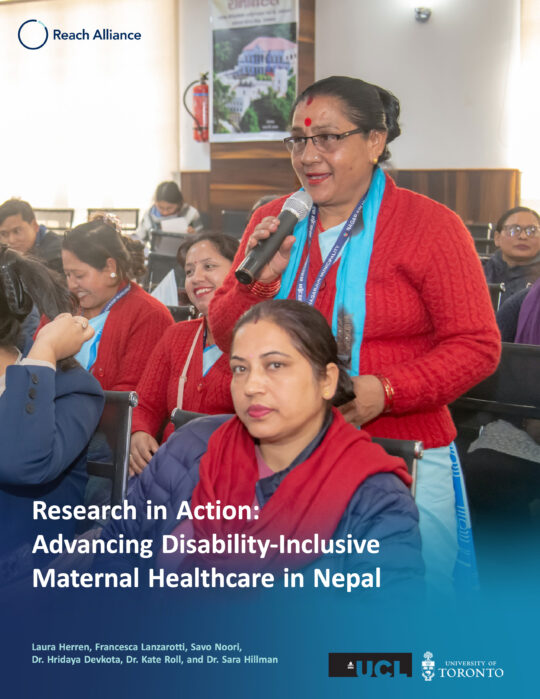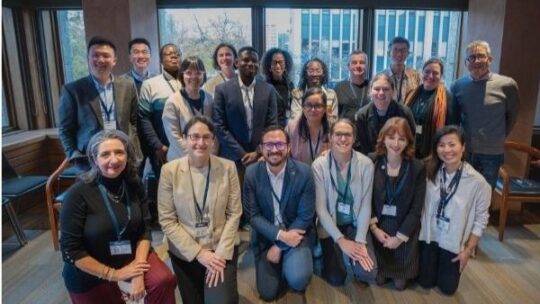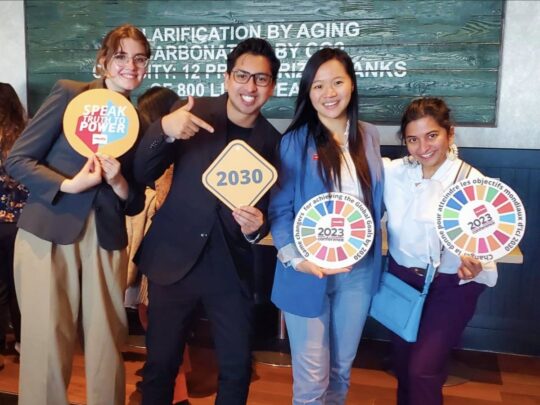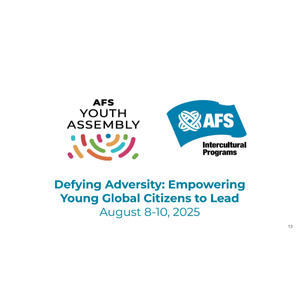News: Alumni, Latest News
Meet Arshia Jain of Team Guatemala 2022-23: Fellows for Change: Empowering Education Leaders in Rural Guatemalan Communities
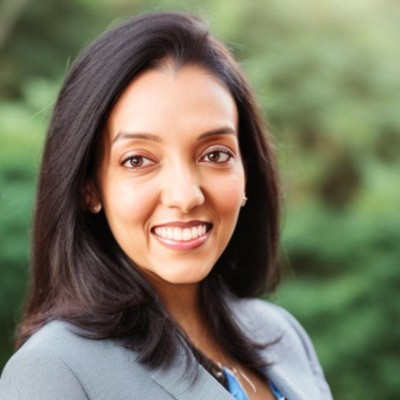
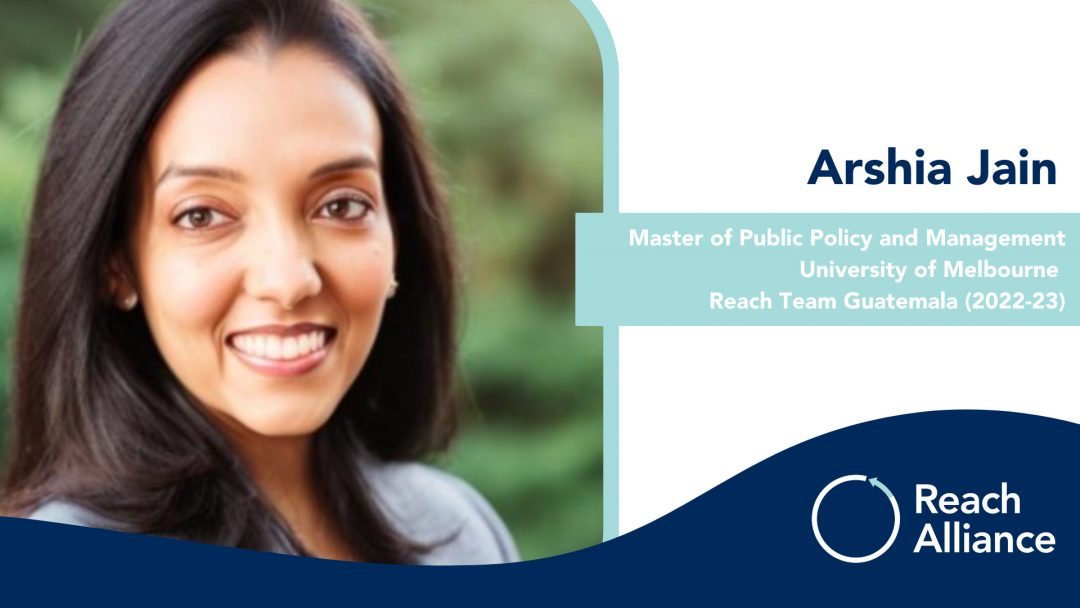
Meet Arshia Jain (Master of Public Policy and Management, University of Melbourne) from Team Guatemala. Arshia Jain recently published her Reach case study report with her team at the University of Melbourne. We caught up with her after she came back from the 2023 Reach Conference in Monterrey, Mexico
Tell us more about yourself and your Reach case study project.
I have just completed my Master of Public Policy and Management degree from the University of Melbourne in Australia. As a Reach researcher in 2023, my team and I traveled to Guatemala to investigate the strategies that a nongovernmental organization (NGO) called ConnectED was implementing in the region. ConnectED selects passionate education leaders in marginalized, rural, and Indigenous Guatemalan communities, who they call fellows, and provides these leaders with training and resources to develop and implement a project that was needed and important in their community. During our fieldwork, we visited a few of these communities to learn about how ConnectED’s Fellows Model had impacted their schools and students and how this model supported relevant and quality education in their communities..
What was your experience working with community partners Kindred and ConnectED?
We were fortunate to have community partners and mentors who were helpful in guiding and supporting us throughout all stages of our research. Our mentors from Kindred helped us prepare before our fieldwork with interactive seminars on cross-cultural practice, principles of community-based research, as well as research design and ethics. They also role-played interviews and focus groups with us to help us plan for various scenarios that may arise during the fieldwork. Once we landed in Guatemala, our community partner, ConnectED, had organized our local transport, a translator, as well as visits to our chosen communities.
A stand-out memory for me was when we were asking questions in a focus group about how the covid-19 pandemic had affected education. One member of the community that we were visiting said it had been a blessing because it compelled their school to start using technology ― which they hadn’t done before that point. It both surprised and inspired us as a research team to witness the optimism and resilience that were evident in all the communities that we visited, despite the hardships, and they had endured.
Why did you decide to join Reach?
I applied to take part in the Reach Alliance program for the opportunity to conduct real-world research, to work alongside other passionate and driven young people, and to gain global exposure in the policy and development space. The Reach Alliance emphasizes developing practical evidence-based solutions to address the world’s most pressing problems and support for hard-to-reach populations, and that’s something that appealed to me when applying.
For me, Reach has been such a unique global opportunity because of the type of communities that we were able to visit during our fieldwork, the type of conversations we were able to have with local people, and the type of knowledge we were able to gain just would not have been possible otherwise.
You had the opportunity to join us in Mexico for the 2023 Reach Conference. What was that experience like?
Since our case study was published just before the conference commenced, the 2023 Reach Conference in Monterrey became our first knowledge-translation opportunity as a team. The presentations, panels, and casual conversations I was able to engage with throughout the three-day conference on the beautiful Tec de Monterrey campus were insightful, innovative, and human. The attendees were accomplished, passionate, and intelligent young people from around the globe with a shared vision for change.
Some of the recurring themes that I gleaned from the conference and brought home with me were:
- The important role that data collection plays in creating the evidence base that can lead to policy changes.
- The power of community-led movements in driving change and innovation.
- The role of young people as key change makers in striving toward global sustainable development goals
What tips or words of encouragement would you give to someone interested in applying to the Reach initiative?
I would tell them to take a chance and put their best foot forward! It can be daunting to apply, but it’s definitely worth it. Reach researchers have such diversity in age, experience, and disciplines so don’t rule yourself out or limit yourself because of these factors. I would recommend doing a little bit of research before completing the application. I found it useful to look at the Reach website to understand the types of case studies that had been conducted in the past, what Reach’s mission and values were, and how I could showcase my passion for this type of work. It is also important to reflect on your own intentions for applying and how this might fit into your broader career objectives and what you would bring to the team.
